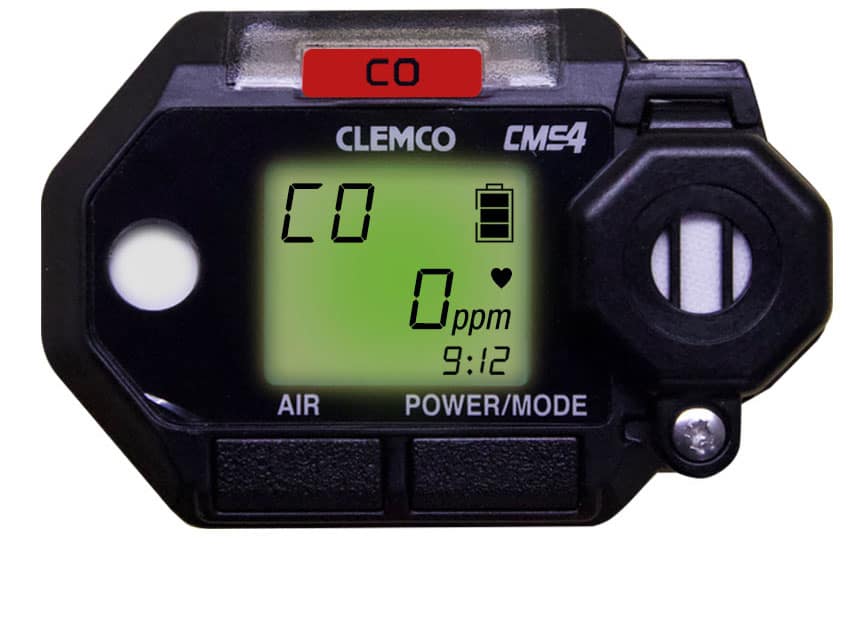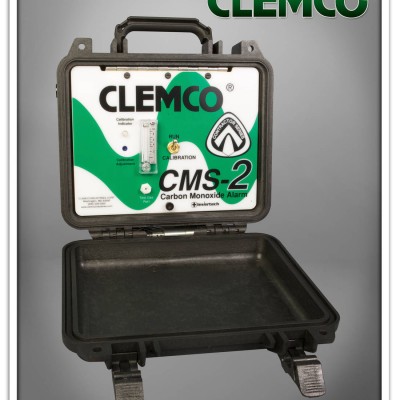Description of Operation
OSHA requires Grade D quality breathing air and NIOSH-approved Type CE continuous-flow supplied-air respirators for abrasive blast operators. OSHA regulations call for a maximum exposure limit to carbon monoxide of 10 parts per million (ppm). When the presence of carbon monoxide is detected at this level, the CMS-4 emits an audible alarm, a visible flash, and the unit vibrates. When an alarm occurs, the user should remove the respirator immediately when it is safe to do so. To prolong battery life, turn unit off when not in use; turn unit on and re-install at beginning of work shift.
CMS-4 Features
- Digital liquid crystal display (LCD)
- Audible, visual, and vibrating alarms
- Low battery alarm
- Sensor fail alarm
- Replaceable sensor and battery
Advantages
- Blast operator can work independently. No need to rely upon others to warn operator or take action when monitor alarms. No need for remote alarm; each user is individually protected for instant awareness of a hazardous condition.
- Unit is small, lightweight, and conveniently worn inside blast respirator. Requires no external connections or hoses.
- Unit can be calibrated in minutes, is easily installed, and easily removed.
- Long-life, economical easy-to-replace sensor with estimated sensor life of 2 years.
- Unit uses small commonly-available lithium easy-to-replace battery with estimated life of 3000 hours.
- Microprocessor controlled with digital read-out for accurate readings.
Specifications
OSHA rules dictate that maximum exposure limit to CO for abrasive blasters breathing Grade D air is 10 parts per million.
- Sampling by diffusion
- Operating temperature and humidity range:
- Continuous environment: -4° to 122° F (-20° to 40° C); up to 90% relative humidity (noncondensing) factory set at 10 ppm.
- Temporary environment (up to 15 minutes): -4° to 140° F (-20° to 40° C); up to 90% relative humidity (noncondensing) factory set at 10 ppm.
- Accuracy rating: ± 5% of reading or ± 5 ppm CO (whichever is greater)
- Powered by 3-volt coin-type lithium battery (CR2450)
- Continuous operation: approximately 1 year of normal use (3000 hours)
- Unit net weight 1.6 ounces (0.1 lb)
- Dimensions: 2.5″ w x 1.7″ h x 0.9″ d
- Unit calibrated with 25 ppm test gas; optional impurity-free gas available for fresh-air setting audible, vibratory, and visual alarms
- Low-battery warning given by visual flashing indicator
- Dead battery indicated by audible alarm
- System failure warning given by audible alarm
- Attachment to respirator: VELCRO®
- Warranty: 1 year material and workmanship


